Ed Gorman's Blog, page 77
August 28, 2014
HALF IN LOVE WITH ARTFUL DEATH by Bill Crider
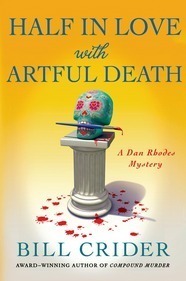
Every time I finish one of Bill Crider's fine novels about small town Texas Sheriff Dan Rhodes, I think I've just read the finest one yet. So let me say that HALF IN LOVE WITH ARTFUL DEATH (which is an excellent title by the way) is Crider's most nuanced, wry, sly and entertaining Rhodes adventure yet. Here's why (and I mean not just because there's a hilarious scene of Rhodes having to lasso a donkey)--Crider has created a series that is as droll and laid back as the "Andy Griffith Show" but is not superficial. Beneath the wonderful humor the Rhodes books give us realistic depiction of humanity in a small Texas town. Take Burt Collins the irritating jackass who instigates not only the book's set up but also the mystery. Every small town has at least one Burt Collins--and irritating and irritable man who imposes his opinions and sanctimonious judgements on everything and everybody. And they do this without shame, seemingly unaware that their public pronouncements are embarrassing and laughable. He's a buffoon but Crider subtly shows us that he's more, a dangerous man in his simpering way. This time Collins is complaining about the artists who've shown up to take lessons from two instructors. He claims they're not the kind of people who should be here. More, he pronounces their work terrible and their attitudes sinful. When their work is defaced Collins is the number one suspect. After all he's long been suspected of other acts of vandalism in the past. Crider makes all his this own by having Rhodes being as baffled by some of the artwork as Collins is. But Rhodes, being a professional law man, keeps his opinions to himself and soldiers on. In the course of his murder investigation, Rhodes is distracted by other cases (in case you thought that lassoing donkeys was all he had to contend with) including a naked woman displaying her wonders publicly, convenience store robberies and meth dealers. The latter is an example of the grit Crider always brings to his Rhodes books. Meth is a scourge on our society. No pratfalls here. Bill Crider is a very gifted writer who deserves a much larger audience. The prose here is crisp and even eloquent in places. The characters while comic (the amateur investigator Seepy Benton being my favorite) are never cartoons and the world he gives us is detailed with a journalist's eye. And has blunt force trauma ever been inflicted by a more symbolic weapon (for a small Texas town) than the bust of NASCAR legend Dale Earnhardt, Junior? So whether you're returning to the series or just starting it, you'll enjoy seeing a master storyteller working at his very best.
Published on August 28, 2014 07:25
August 27, 2014
Amazing Author Insults That Actually Raise Insults To An Art Form
Amazing Author Insults That Actually Raise Insults To An Art FormThe Huffington Post | By Claire FallonEmailPosted: 08/27/2014 8:22 am EDT Updated: 3 hours ago
 Share74Tweet212Email7Comment4
Share74Tweet212Email7Comment4

Henry James, according to H.G. Wells:
“His vast paragraphs sweat and struggle ... And all for tales of nothingness … It is leviathan retrieving pebbles. It is a magnificent but painful hippopotamus resolved at any cost, even at the cost of its dignity, upon picking up a pea which has got into a corner of its den.”Aldous Huxley, according to Virginia Woolf:
"I am reading [Point Counter Point]. Not a good novel. All raw, uncooked, protesting.”
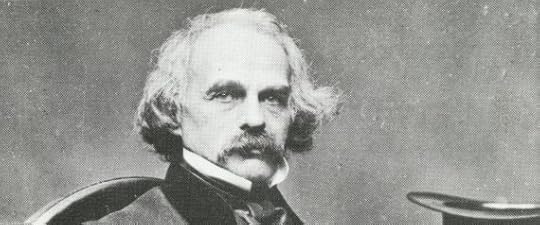
Nathaniel Hawthorne, according to Ralph Waldo Emerson:
“Nathaniel Hawthorne’s reputation as a writer is a very pleasing fact, because his writing is not good for anything, and this is a tribute to the man.”Bret Easton Ellis, according to David Foster Wallace:
“[American Psycho] panders shamelessly to the audience’s sadism for a while, but by the end it’s clear that the sadism’s real object is the reader herself.”David Foster Wallace, according to Bret Easton Ellis:
"I continue to find David Foster Wallace the most tedious, overrated, tortured, pretentious writer of my generation."

Ezra Pound, according to Gertrude Stein:
“A village explainer, excellent if you were a village, but if you were not, not.”George Bernard Shaw, according to H.G. Wells:
“All through the war we shall have this Shavian accompaniment going on like an idiot child screaming in a hospital, discrediting, confusing. He is at present… an almost unendurable nuisance.”
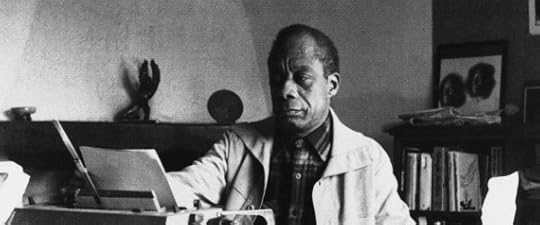
James Baldwin, according to Norman Mailer:
“James Baldwin is too charming a writer to be major. If in Notes of a Native Son he has a sense of moral nuance which is one of the few modern guides to the sophistications of the ethos, even the best of his paragraphs are sprayed with perfume.”Crime novelist James M. Cain, according to Raymond Chandler:
"Everything he touches smells like a billygoat. He is every kind of writer I detest, afaux naif, a Proust in greasy overalls, a dirty little boy with a piece of chalk and a board fence and nobody looking."
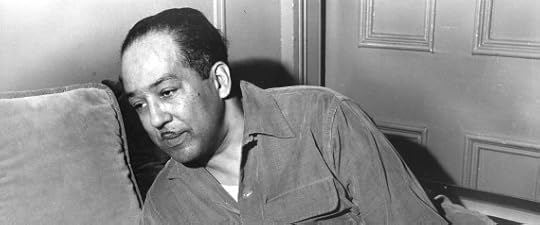
Langston Hughes, according to James Baldwin:
"Every time I read Langston Hughes I am amazed all over again by his genuine gifts--and depressed that he has done so little with them."William Wordsworth, according to Dylan Thomas:
"Wordsworth was a tea-time bore, the great Frost of literature, the verbose, the humourless, the platitudinary reporter of Nature in her dullest moods. Open him at any page: and there lies the English language not, as George Moore said of Pater, in a glass coffin, but in a large, sultry, and unhygienic box. Degutted and desouled."
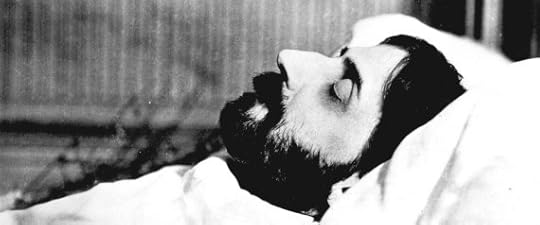
Marcel Proust, according to Evelyn Waugh:
"I am reading Proust for the first time. Very poor stuff. I think he was mentally defective."Richard Wright, according to James Baldwin:
“Below the surface of [Native Son] there lies, as it seems to me, a continuation, a complement of that monstrous legend it was written to destroy.”

Honoré de Balzac, according to Gustave Flaubert:
"What a man he would have been had he known how to write!"Walt Whitman, according to D.H. Lawrence:
"The awful Whitman. This post-mortem poet. This poet with the private soul leaking out of him all the time. All his privacy leaking out in a sort of dribble, oozing into the universe."

Charlotte Brontë, according to George Eliot:
"I only wish the characters [of Jane Eyre] would talk a little less like the heroes and heroines of police reports."Bertolt Brecht according to Tom Stoppard:
"Personally, I would rather have written Winnie the Pooh than the collected works of Brecht."
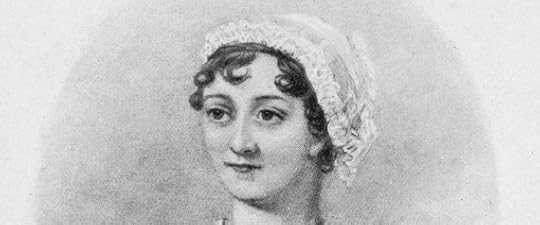
Jane Austen, according to Ralph Waldo Emerson:
"Miss Austen’s novels… seem to me vulgar in tone, sterile in artistic invention, imprisoned in the wretched conventions of English society, without genius, wit, or knowledge of the world. Never was life so pinched and narrow."Harriet Beecher Stowe, according to James Baldwin:
"She was not so much a novelist as an impassioned pamphleteer.”ALSO ON HUFFPOST:13 Nobel Prize In Literature Winners You Should Read1 of 14
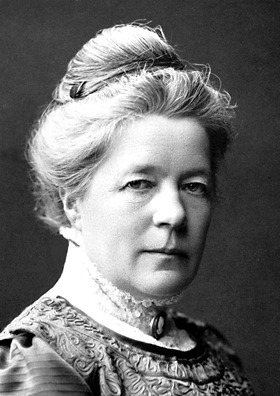
Published on August 27, 2014 11:26
Headlines that shouldn't be true but are
Police: Denver man shot his wife dead, then asked 7-year-old son to do
the same to him
Maryland suspect reportedly beat man to death, set body on fire, took
victim’s dog for a walk
County Forgives $2.4M in Bad Speed-Camera Tickets8/22/14 | 2:32 PM ET
Suspicious Object Turns out to Be Star Wars Toy8/22/14 | 12:32 PM ET
Kansas police shot unarmed suicidal teen 16 times as family says they
begged them not to
Fox News guest: Was Michael Brown too large to be an ‘unarmed teen’?
Pastor calls to imprison gays for ‘ten years hard labor’ with new
constitutional amendment
Arizona Girl Accidentally Shoots Her Shooting Instructor In The Head
OOPS: County Wrongly Figured Blood-Alcohol Levels8/22/14 | 12:00 PM ET
Man Has Kept All His Nail Clippings In A Jar -- Since 1978!
WATCH: TX police draw guns on mother and young children they mistook
for gun-waving males
CNN host rips Fox for ‘sowing doubt’ with baseless report on officer’s
fractured eye socket
Massachusetts man fears his horns, ’666? forehead tattoo will make a
fair trial impossible
Fox host kicks off two black lawyers after they accuse her of
‘distracting’ from Brown’s death
Someone in Brooklyn Keeps Filling Trash Bags With Pee, and Their
Neighbors Are Not Happy
Iowa GOP Official Warns That Child Migrants Might Be Highly Trained
"Warriors"
Another GOP Candidate Says Migrant Kids Might Have Ebola. (They Don't.)
Anti-Israel Protesters in London Defend Hitler...
Cops Accused Of Using Police Database To Screen Women Found On Dating
Sites...
Texas babysitter reportedly set ‘disrespectful’ kids’ house on fire
Lawyer Wants Seized $125K Wine Collection Back8/22/14 | 11:51 AM ET
UN-BEE-LIEVABLE: 50,000 Bees Living in NYC Ceiling8/22/14 | 11:14 AM ET
California Permits Outdoor Dining With Dogs8/22/14 | 10:09 AM ET
Md. Ban on Grain Alcohol Hurts Violin Makers
German Man Evicted for Squeaky Swing Set Sex
Published on August 27, 2014 07:49
August 26, 2014
Booklist Starred Review for Riders On The Storm by me
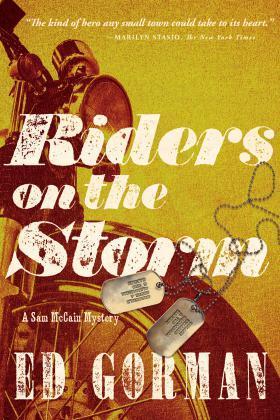 [image error]
[image error]Issue: September 15, 2014
Riders on the Storm.Advanced Review – Uncorrected ProofGorman, Ed (Author) Oct 2014. 208 p. Pegasus, hardcover, $25.95. (9781605986258).Starred Review
Sam McCain is back home from the service in Black River Falls, Iowa. Vietnam is still raging, and the town has a number of returned vets, many missing limbs or struggling with horrific memories. Before he could be deployed, Sam was severely injured when the jeep in which he was a passenger was rolled by the drunken sergeant driving it. For many months, Sam wasn’t sure who he was. There are still headaches, but his memory is back. He’s doing routine work as a lawyer until his friend Will Cullen, involved in Vietnam Veterans against the War, is beaten badly by war cheerleader Steve Donovan, who is murdered a couple days later, leaving Cullen as the obvious suspect. Sam dons his investigator cap and backtracks through Donovan’s life, looking for a motive and a killer. Gorman is a prolific, award-winning author, and the McCain series may be his best work. Black River Falls is a changing industrial city in the early seventies, and McCain is changing with it. The simmering political climate is perfectly rendered and affects every character. As the series progresses, Sam matures and grows slightly more cynical with each case. This is an extended, nuanced fictional biography with an occasional mystery thrown in. Great reading. Welcome home, Sam.— Wes Lukowsky
Published on August 26, 2014 09:07
August 25, 2014
BATTLE OF THE POWELLS: WILLIAM VS. DICK
BATTLE OF THE POWELLS: WILLIAM VS. DICK
 Posted by Susan Doll on August 25, 2014 Movie Morlocks
Posted by Susan Doll on August 25, 2014 Movie Morlocks


Ed here: Pauline Kael once referred to Dick Powell as "the sappiest crooner" of the Thirties. Yet he ended up doing well by Philip Marlowe. On the other hand a William Powell's fedora tip to the crime genre was playing Philo Vance as well as appearing in several other mysteries. Susan Doll's take on the two is well done..
Susan Doll:
Today, TCM pays tribute to Dick Powell, airing 14 of his films as part of Summer Under the Stars. Earlier this month, a day had been devoted to William Powell. As a major fan of both stars, I can’t decide if I was more excited to listen to Dick Powell croon and crack wise, or watch William Powell woo his costars with wit and style.
Like several male stars from the Golden Age, neither Powell was classically handsome. Yet, both are attractive and appealing because of their cultivated charisma and star images. WP was the elegant gentleman who exuded romance and class, while his keen sense of humor prevented his characters from becoming too high brow or pompous. Though he played oily cads very early in his career, his star image as the suave gent was cemented by the 1930s and remained remarkably consistent until his last movie, Mr. Roberts , in 1955. I admire those Golden Age movie stars who were able to maneuver their images through the changes in the industry and the ravages of aging. But, then again, who doesn’t respect Dick Powell for completely changing his star image from the sweet-faced crooner of backstage musicals to the wise-cracking, hard-boiled anti-hero of film noir.
William Powell is the very essence of romance in his films from the 1930s. His graciousness and consummate manners seem like a throwback to another era, when men treated women with respect and approached them with gallantry. Or, perhaps there never was such an era and it is only “movie memory” that makes me think there was. Even when his character deceives Myrna Loy—his most constant costar—in Libeled Lady or goads her in Double Wedding , we know he will ultimately act in her best interests at the expense of his own. WP’s best tool for charming women was his voice—so smooth, soothing, melodious.
Dick Powell’s voice was also his best asset, and not just because he could sing in that high tenor voice (see 42nd Street today at 1:00pm). With his impeccable timing and sarcastic tone, he could toss off a verbal barb with wit and aplomb. Of all the actors to play Philip Marlowe, Dick Powell was the best at handling Raymond Chandler’s wise-cracking one-liners and smart dialogue. Revisit Murder, My Sweet this evening at 9:15 on TCM and focus on Powell’s line delivery. The back-and-forth banter between Powell and his leading ladies in his film noirs is a verbal dance—sexy in its sarcasm and modern in its suggestion that all romance is a sham. This is miles away from William Powell’s star image—yet I find both romantic in different ways.
for the rest go here:
http://moviemorlocks.com/2014/08/25/b...
Published on August 25, 2014 14:25
I. Asimov Ben Boulden from Gravetapping
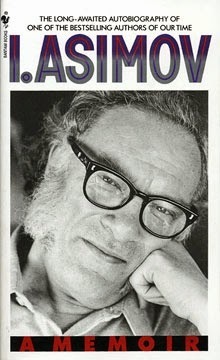 The essays run about four or five pages—sometimes longer, sometimes shorter—and cover a specific event, person, or idea. He discusses his early life in detail; specifically, working in his parent’s Brooklyn candy store as a boy surrounded by the pulp magazines of the 1920s and 1930s, which he wasn’t allowed to read until he convinced his father the science fiction magazines were about science.
The essays run about four or five pages—sometimes longer, sometimes shorter—and cover a specific event, person, or idea. He discusses his early life in detail; specifically, working in his parent’s Brooklyn candy store as a boy surrounded by the pulp magazines of the 1920s and 1930s, which he wasn’t allowed to read until he convinced his father the science fiction magazines were about science. The bulk of the book is devoted to his literary life, which, in his own estimation was his life. In several sections of the book he wrote he would rather write than anything else. He did not enjoy travel, and while he did enjoy the company of others, he did not tend to seek it out, and, especially in his early years, he had difficulty getting along and making friends.
He touches on his major works—The Foundation series; specifically the original trilogy—“Nightfall,” “The Ugly Little Boy” and many others. He freely admits he enjoyed writing nonfiction more than fiction, and in fact, he considered himself a much more accomplished writer of nonfiction. A sentiment I tend to agree with; however I enjoyed the original Foundation trilogy immensely when I read it as a teenager.
The most interesting essays in I. Asimov are the short pieces he wrote about his experiences with other science fiction writers. He had lifelong relationships with many writers, some of whom were part of the science fiction fan club The Futurians. The Futurians, as Asimov describes it, was an off shoot of the Queens Science Fiction club. The split occurred because the Queens club wanted science fiction to keep itself above politics, and specifically not speak out against fascism, which was spreading across Europe at the time, and The Futurians wanted fascism denounced. The Futurians included Frederick Pohl, who has written extensively about the club on his blog, Cyril M. Kornbluth, and Donald A. Wollheim.
He also writes admiringly of John W. Campbell, the editor of Astounding Science Fiction (ASF), who gave Asimov his first real hope of publishing his science fiction stories and also, later, gave him the idea for his short story “Nightfall”. The seed for the story came from a Ralph Waldo Emerson essay titled “Nature”.
Asimov seemingly knew everyone writing science fiction in the 1940s through the 80s. A few of the more interesting comments Asimov makes about his contemporaries follows.
H. L. Gold. Gold was the editor of Galaxy; a top tier science fiction magazine where Asimov placed several stories. Gold was an ill-tempered editor, who changed story narratives and titles, and replied with meanness when the authors objected. Galaxyserialized Asimov’s novel The Stars, Like Dust and changed the title to Tyrann; “Worst of all was his pernicious habit of writing insulting rejection letters.”
Robert Heinlein. Heinlein is considered the father of modern science fiction, and Asimov worked with him during World War II, as a civilian employee of the Naval Air Experimental Station (NAES) in Philadelphia. Asimov wrote that he and Heinlein had an uneven friendship. He quipped about Heinlein:
“…although a flaming liberal during the war, Heinlein became a rock-ribbed far-right conservative immediately afterward. This happened at just the time he changed wives from liberal woman, Leslyn, to a rock-ribbed far right conservative woman, Virginia.”
Clifford D. Simak. In 1938 when Asimov was still a teenager he wrote a letter to ASFregarding Simak’s story “Rule 18”; he didn’t like the story much. Simak wrote a polite letter to Asimov inquiring what he didn’t like about the story. In response to Simak’s letter Asimov wrote:
“…I promptly reread [it]…and I found, to my intense embarrassment, that it was a very good story and that I liked it.”
I. Asimov doesn’t have the depth and detail of an autobiography. It has the feel of a congenial conversation, but it seemingly reveals his character, and he makes a point to highlight his flaws. It is an appealing book written by one of science fiction’s most well-known writers, and it is more entertaining and enlightening than I would have imagined.
This review originally went live June 3, 2012; however the stories Mr Asimov tells in its pages has stuck with me over the past few years, and I have especially been thinking about it again over the last several weeks.

Published on August 25, 2014 07:01
August 24, 2014
excellent - martin scorcese talking about "ride lonesome"
Published on August 24, 2014 18:58
Libby Hellman's Street Team
Libby Hellman's Street Team


Libby Hellman's Street Team


Hi Ed,I'm not Martha and the Vandellas (♪ Dancin' in the Streets ♫), but I have an invitationfor you to do some "virtual" Dancing in the Streets in exchange for some freebies... if you're interested.
Maybe you've heard that it takes a village to sell a book today. It's true, and manyauthors, myself included, have begun to use Street Teams (they originated in themusic industry) to help spread the word about their books.
I'm looking for a few, select, enthusiastic fans to do some minor tasks online,in-person, or both to help get the word out about my books, audios, and short stories.Examples include: writing an honest review, doing the occasional social media shareor post, and maybe even asking a library or bookstore to carry one of my books.
In exchange for these undertakings -- things that you might do anyway, I hope -- the Street Team will have daily access to me and other members of the team.You'll also get some fun goodies from time to time.
You'll be the first to learn about my upcoming books and events, get an ARC(Advanced Reader Copy) of my latest novel, and generally be "in the know"about my goings on.
Ready to learn more?
Head to the Street Team page on my website here, fill out the form, and I'llbe in touch. If you're approved, we'll get you signed up for our private FacebookGroup (being on Facebook is a requirement since that's where we will interact).
I'm eager to see who among you wants to be a Street Teamer! You can sign up here.
Even if you decide the Street Team isn't for you, if you've read Nobody's Child and liked it, could you please tell another crime reader about it? Word of mouth isthe most powerful recommendation tool there is, and it would make a huge difference.Thanks so much.
Best
Libby
Please add my email address to your safe sender list so my emails don't get trapped in the netherworld of your spam box. Latest Articles from my blog
 My Latest Novel - Nobody's Child
My Latest Novel - Nobody's Child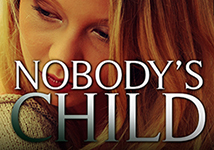


Published on August 24, 2014 07:26
August 23, 2014
BLU-RAY REVIEW: “THE BRONTE SISTERS” . by Fred Blosser
BLU-RAY REVIEW: “THE BRONTE SISTERS” ...
Celebrating Films of the 1960s & 1970s
BLU-RAY REVIEW: “THE BRONTE SISTERS” (“LES SOEURS BRONTE”) (1979), STARRING ISABELLE ADJANI, ISABELLE HUPPERT AND MARIE-FRANCE PISIER; THE COHEN FILM COLLECTION SPECIAL EDITION By Fred Blosser
By Fred Blosser
BLU-RAY REVIEW: “THE BRONTE SISTERS” (“LES SOEURS BRONTE”) (1979), STARRING ISABELLE ADJANI, ISABELLE HUPPERT AND MARIE-FRANCE PISIER; THE COHEN FILM COLLECTION SPECIAL EDITION
By Fred BlosserI approached the 2013 Blu-Ray edition of André Téchiné’s “The Bronte Sisters” (1979) with mild interest, which was mostly piqued by the powerhouse casting of the three leading young actresses of 1970s French cinema -- Isabelle Adjani, Isabelle Huppert, and Marie-France Pisier -- as Emily, Anne, and Charlotte Bronte. Imagine a 2014 U.S. film teaming Scarlett Johanssen, Jennifer Lawrence and Shailene Woodley. With vague memories of “Devotion,” Hollywood’s melodramatic 1946 Bronte biopic, I was doubtful that the film itself would be particularly compelling. But I was pleasantly surprised. Relating the formative events in the lives of the three sisters and their brother Branwell (Pascal Greggory) in straightforward, episodic form, Téchiné’s interpretation is first-rate: excellently acted, emotionally moving, and visually striking with starkly beautiful cinematography by Bruno Nuytten on the Yorkshire moors where the Bronte siblings lived their sadly short lives.
In a new documentary about the making of the film, included as an extra on the Cohen Film Collection Blu-Ray, Téchiné recalls that he wanted to stay true to the facts of the Brontes’ lives without speculation or embellishment. Similarly, he “demanded a certain austerity of acting” from the cast to complement the unadorned style of the narrative. Beginning with a scene in which Branwell, proud but also uncertain about his talent, unveils his painting of his three sisters and himself, the movie proceeds to cover decisive moments in the siblings’ lives. Emily, a free spirit, capers on the moors in boy’s clothing. Charlotte, the quietly ambitious sister, convinces their aunt to lend money so that she and Emily to go abroad to school. Anne, the dutiful one, stays behind to take care of their father, aunt, and brother.
Initially, this approach seems a bit cold and distant, but as the movie continues, it becomes clear that Téchiné’s decision was a wise one. The unfolding vignettes are quietly powerful in illuminating the close and sometimes contentious relationships between the sisters. This matter-of-factness pays off especially well in the later segments of the film. As one tragedy after another besets the family, the scenes relating to the deaths of Branwell, Emily, and Anne are all the more affecting because they aren’t amped up with banal dialogue and syrupy background music. Téchiné is helped immensely by the costuming, set design and cinematography (as he acknowledges in the making-of documentary), which recreate mid-19th Century England in astonishing detail.
A certain playful sense of humor surfaces occasionally, leavening the bleakness of the story. When the sisters submit their first novels as Acton, Currer, and Ellis Bell, speculation runs wild in the publishing world: are they the same person, are they male or female, are they a man and a woman collaborating? Deciding it’s time to reveal the sisters’ true identities, Anne and Charlotte travel to London to meet with their publisher in person. “I am Currer Bell, and that is Acton,” Charlotte says quietly when she and Anne appear unexpectedly in the publisher’s office. “We are three sisters. There is no man.” Pisier delivers the lines with perfect deadpan matter-of-factness.
Adjani, Huppert, and Pisier are luminous. Interviews in the making-of documentary reveal that the actresses had a sometimes intense off-camera rivalry, complicated by existing relationships with other people in the production crew. (Téchiné and Pisier were friends; Adjani and Nuytten were romantically attached.) It’s a measure of Téchiné’s talent and the actresses’ professionalism that the three women convincingly project a sisterly bond of support and affection, with perhaps the real-life rivalry only erupting strategically on screen in scenes where the sisters’ love for each other is strained. I wish Patrick Magee (“Marat/Sade,” “A Clockwork Orange”) had more to do as the head of the Bronte family, and his distinctive voice is lost because his lines are dubbed in French by someone else, but nevertheless his presence is used effectively if sparingly, Bronte purists will be pleased that he, Téchiné, and co-writer Pascal Bonitzer portray the Rev. Patrick Bronte sympathetically as a caring father and progressive clergyman, reflecting modern scholarship that refutes earlier prose and film portraits of Bronte as a domestic tyrant.
In addition to the making-of documentary, the Cohen Film Collection Blu-Ray includes two trailers and an excellent audio commentary track by film critic Wade Major and Bronte scholar Sue Lonoff de Cuevas. If you’re as unfamiliar with the subject matter as I was, I might almost suggest that you listen to the commentary before playing the movie, since Major and de Cuevas illuminate many details about Bronte history and about the production aspects of the movie that deepened my appreciation of the film. Although the making-of documentary doesn’t include Adjani or Huppert (Pisier died in 2011), many of the other key cast and crew are interviewed. This is an excellent Blu-Ray package, highly recommended. CLICK HERE TO ORDER FROM AMAZONPosted by Cinema Retro in DVD/Streaming Video Reviews & News on Wednesday, August 20. 2014
Celebrating Films of the 1960s & 1970s
BLU-RAY REVIEW: “THE BRONTE SISTERS” (“LES SOEURS BRONTE”) (1979), STARRING ISABELLE ADJANI, ISABELLE HUPPERT AND MARIE-FRANCE PISIER; THE COHEN FILM COLLECTION SPECIAL EDITION
 By Fred Blosser
By Fred Blosser BLU-RAY REVIEW: “THE BRONTE SISTERS” (“LES SOEURS BRONTE”) (1979), STARRING ISABELLE ADJANI, ISABELLE HUPPERT AND MARIE-FRANCE PISIER; THE COHEN FILM COLLECTION SPECIAL EDITION
By Fred BlosserI approached the 2013 Blu-Ray edition of André Téchiné’s “The Bronte Sisters” (1979) with mild interest, which was mostly piqued by the powerhouse casting of the three leading young actresses of 1970s French cinema -- Isabelle Adjani, Isabelle Huppert, and Marie-France Pisier -- as Emily, Anne, and Charlotte Bronte. Imagine a 2014 U.S. film teaming Scarlett Johanssen, Jennifer Lawrence and Shailene Woodley. With vague memories of “Devotion,” Hollywood’s melodramatic 1946 Bronte biopic, I was doubtful that the film itself would be particularly compelling. But I was pleasantly surprised. Relating the formative events in the lives of the three sisters and their brother Branwell (Pascal Greggory) in straightforward, episodic form, Téchiné’s interpretation is first-rate: excellently acted, emotionally moving, and visually striking with starkly beautiful cinematography by Bruno Nuytten on the Yorkshire moors where the Bronte siblings lived their sadly short lives.
In a new documentary about the making of the film, included as an extra on the Cohen Film Collection Blu-Ray, Téchiné recalls that he wanted to stay true to the facts of the Brontes’ lives without speculation or embellishment. Similarly, he “demanded a certain austerity of acting” from the cast to complement the unadorned style of the narrative. Beginning with a scene in which Branwell, proud but also uncertain about his talent, unveils his painting of his three sisters and himself, the movie proceeds to cover decisive moments in the siblings’ lives. Emily, a free spirit, capers on the moors in boy’s clothing. Charlotte, the quietly ambitious sister, convinces their aunt to lend money so that she and Emily to go abroad to school. Anne, the dutiful one, stays behind to take care of their father, aunt, and brother.
Initially, this approach seems a bit cold and distant, but as the movie continues, it becomes clear that Téchiné’s decision was a wise one. The unfolding vignettes are quietly powerful in illuminating the close and sometimes contentious relationships between the sisters. This matter-of-factness pays off especially well in the later segments of the film. As one tragedy after another besets the family, the scenes relating to the deaths of Branwell, Emily, and Anne are all the more affecting because they aren’t amped up with banal dialogue and syrupy background music. Téchiné is helped immensely by the costuming, set design and cinematography (as he acknowledges in the making-of documentary), which recreate mid-19th Century England in astonishing detail.
A certain playful sense of humor surfaces occasionally, leavening the bleakness of the story. When the sisters submit their first novels as Acton, Currer, and Ellis Bell, speculation runs wild in the publishing world: are they the same person, are they male or female, are they a man and a woman collaborating? Deciding it’s time to reveal the sisters’ true identities, Anne and Charlotte travel to London to meet with their publisher in person. “I am Currer Bell, and that is Acton,” Charlotte says quietly when she and Anne appear unexpectedly in the publisher’s office. “We are three sisters. There is no man.” Pisier delivers the lines with perfect deadpan matter-of-factness.
Adjani, Huppert, and Pisier are luminous. Interviews in the making-of documentary reveal that the actresses had a sometimes intense off-camera rivalry, complicated by existing relationships with other people in the production crew. (Téchiné and Pisier were friends; Adjani and Nuytten were romantically attached.) It’s a measure of Téchiné’s talent and the actresses’ professionalism that the three women convincingly project a sisterly bond of support and affection, with perhaps the real-life rivalry only erupting strategically on screen in scenes where the sisters’ love for each other is strained. I wish Patrick Magee (“Marat/Sade,” “A Clockwork Orange”) had more to do as the head of the Bronte family, and his distinctive voice is lost because his lines are dubbed in French by someone else, but nevertheless his presence is used effectively if sparingly, Bronte purists will be pleased that he, Téchiné, and co-writer Pascal Bonitzer portray the Rev. Patrick Bronte sympathetically as a caring father and progressive clergyman, reflecting modern scholarship that refutes earlier prose and film portraits of Bronte as a domestic tyrant.
In addition to the making-of documentary, the Cohen Film Collection Blu-Ray includes two trailers and an excellent audio commentary track by film critic Wade Major and Bronte scholar Sue Lonoff de Cuevas. If you’re as unfamiliar with the subject matter as I was, I might almost suggest that you listen to the commentary before playing the movie, since Major and de Cuevas illuminate many details about Bronte history and about the production aspects of the movie that deepened my appreciation of the film. Although the making-of documentary doesn’t include Adjani or Huppert (Pisier died in 2011), many of the other key cast and crew are interviewed. This is an excellent Blu-Ray package, highly recommended. CLICK HERE TO ORDER FROM AMAZONPosted by Cinema Retro in DVD/Streaming Video Reviews & News on Wednesday, August 20. 2014
Published on August 23, 2014 07:36
August 22, 2014
Pro-File Mary Daheim CLAM WAKE
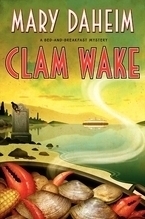
ED GORMAN INTERVIEWMary Daheim
1. Tell us about your current novel/collection.
Clam Wake , No. 29 in the Bed-and-Breakfast series, debuts Aug. 12. Cousins Judith and Renie have covered a lot of ground and encountered a lot of corpses since 1991. (Wouldn't you think they could find a less gruesome hobby?)
The cousins are house-sitting on Whoopee Island for Auntie Vance and Uncle Vince at Obsession Shores on Whoopee Island. Big beach, great view, fridge full of food. What could possibly go...okay, so it's gloomy January, most of the residents are retirees who pass the time drinking cocktails and having extramarital affairs. But Judith and Renie are duty-bound to cast their aunt and uncle's proxy votes against changing the septic tanks to a sewer system. Before they can attend the meeting, the go for a stroll along the beach and discover a...yes! A dead body.
For once, Judith isn't reluctant about finding out whodunit, having felt she didn't bring her A Game in Gone With the Win. The hunt is on, including one for buried treasure and a mystery boat that appears at midnight from who knows where or why. There's also a spooky old house where the nonagenarian land owner rules with an iron fist--when he's not face-down in his lunch plate.
2. Can you give a sense of what you're working on now?
I've just finished The Alpine Zen which, as so many people assume is the end of the Emma Lord series. I do not assume this and plan to flip future titles (eldest daughter's idea) as in A______Alpine, B ______Alpine, etc. There are still tales to be told in Skykomish County. The story starts with the arrival of a strange young woman from California seeking her roots. Abandoned by her birth mother, but left with items indicating Mom had a special attachment to Alpine, Ren Rawlings seeks Emma's help. There's not much she can do for Ren, especially with the distraction of Sheriff Milo Dodge's deputies digging up a long-dead body at the dump site on the edge of town.
3. What is the greatest pleasure of a writing career?
The writing. I love what I do. I get cranky if I don't write for a couple of weeks. The other pleasure--let's call it a surprise--occurred in 2009 when I learned that two men had found the long-lost site of the real Alpine where my parents, grandparents and several other family members had lived from 1916-1928. A native of this area, Pat Burns was close to retirement at a college in Georgia and longing to get back to his native turf. He told old friend Tim Raetzloff that the only way he could ease his homesickness was by reading my Alpine series because the books evoked the region so well. Tim got hooked on the series, too, so when Pat retired, they went searching for the abandoned town site--and found it. I now have my own treasure chest of Alpine relics and have been to the old site just off the Stevens Pass Highway. The goal is to create a historic marker trail that would link two existing trails in the Cascade Mountains.
4. What is the greatest DISpleasure?
I have to think about this...I guess having to read through my own mss. 5-6 times during the writing and the production process. I've convinced it's all junk. Then I see the actual book and decide maybe it wasn't as bad as I thought.
5. If you have one piece of advice for the publishing world, what is it?
Honor Thy Author. My complaint is the same as that of most other authors. Publishers' ad/marketing budgets seem tilted toward the Big Names that will sell without the hype. Yes, I get it that those best-selling authors help pay the freight for the rest of us. But it'd be money well-spent to toss more $$$ at less well-known writers. Of course there's also the complaint that publishers should never have let e-books be sold for half or even less of the price of a hardcover. But it's too late to do anything about that.
6. Are there three or four forgotten mystery writers you'd like to see in print again?
There are too many to mention, but the one that rankles most when it comes to recognition is Mary Roberts Rinehart, known as the American Agatha Christie. Rinehart, in fact, was published first and like Christie, wrote books other than mysteries (romance novels. plays, travel books). Yes, her books are dated, but so are Christie's. However, the mysteries are solid, the characters are engaging, and the settings are well-done. I should add that many of her books are still in print.
7. Tell us about selling your first novel. Most writers never forget that moment.
Okay, so I'm contrary by nature. I am NOT a morning person. My husband, Dave, and I had only been married for a few days before he told me that if I continued to get up to make him breakfast our marriage wouldn't last a year. I was noisy, sharp-tongued, and cussed a lot. I said, "Fine." And stomped back to bed. Fast forward to 1981: I was sound asleep at 7:15 a. m. (PDT) when Dave woke me to say that my agent, Donald MacCampbell, was calling from New York City. I staggered downstairs and picked up the phone. Donald announced that he had sold my historical romance (titled The Royal Mile by me, re-titled Love's Pirate by my editor) to Avon Books. I said, "That's nice. Thanks." Donald asked--in surprise--why I didn't sound excited. I replied, "Because I'm not awake and won't be until about 10:15. I'll call you back then--and be excited." I went back to bed, back to sleep--and woke up at 10 to (excitedly) call Donald.
[image error]

Published on August 22, 2014 19:06
Ed Gorman's Blog
- Ed Gorman's profile
- 118 followers
Ed Gorman isn't a Goodreads Author
(yet),
but they
do have a blog,
so here are some recent posts imported from
their feed.




